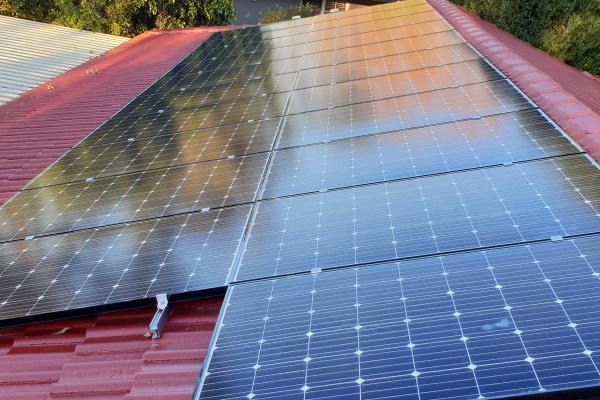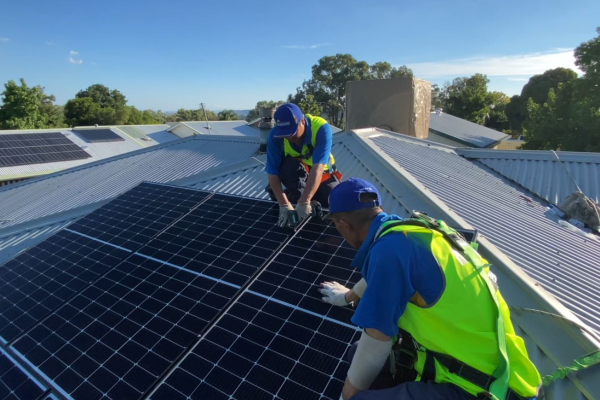Skylights Guides
DIY Skylights
“DIY skylights” typically refers to skylight systems that can be installed without major building…

Over the last 15 years solar has been one of the fastest growing industries in Australia. During this time the solar panels cost and the price of standard solar systems has fallen dramatically. This is mostly due to improvements in technology.
In 2010, with the help of generous government rebates, a 5kW solar panel system cost around $10,000. Today, despite lower government subsidies, a quality 6.6kW system has a price of around $5,000.
Most solar products are produced in China. The costs of producing solar panels and solar inverters have reached rock bottom in the last few years. Consequently, many manufacturers are struggling to make a profit due to fierce competition.
Thanks to government subsidies, solar panel costs are lower in Australia. Thus, solar power systems are more affordable here than in most parts of the world. Despite this, consumers in Australia often feel confused by the large variation in the advertised prices for solar systems.
For example, a typical 6.6kW solar power systems with entry-level products can be quoted anywhere between $3,500–$7000 by different retailers and installers.
How can there be such huge variation in price for similar products? To answer this question, we need to look at the costs endured by solar businesses, and the different models for solar businesses operating in Australia.
There are three main types of solar businesses:
Established Solar Retailers
Usually, these businesses are a “full service” business. They will have an operations centre and warehouse. They offer free in-house consultations for potential customers. They have the qualifications and sufficient resources to complete jobs successfully and safely. Solar retailers can be more reliable than other businesses, as they have dedicated customer service and technical support personnel.
Unfortunately, what we see now is some large solar retailers adopting a low-cost model with low quality service for customers. These retailers run their operations from overseas call centres in India or the Philippines. Often they reverse-auction their installation work out to subcontractors to get the cheapest installation price.
Marketers
These are usually micro-businesses run by operators who utilise subcontractors. The products are collected from distributors and wholesalers before delivering them to customers. Typically they have an attractive website and a virtual office address. These businesses operate on very slim margins, and it is impossible for them to service customers over the long term. In many cases, these businesses hide their shortcomings by offering customers reputable brands at ridiculously low prices.
Installers
These are usually tradies with no base of operations. They run the business from their vans, purchasing products from distributors and wholesalers. In most cases, these installers find themselves a job for the day and have insufficient profits to provide a good level of customer or after-sales service.
Running a professional business in any sector is always costly and never easy. All businesses that supply and install solar panels in Australia face both direct and indirect costs.
These costs include the essential items to complete a job. For example, a 6.6kW solar power system with entry level components may incur the following costs:
|
Item |
Typical Cost Inc GST |
|
Cheap solar panels |
$3,070 |
|
Cheap 5kW inverter |
$550 |
|
Low quality installation |
$1,880 |
|
Balance of system (roof mount kits) |
$440 |
|
Outsourced marketing (purchasing leads from third party) |
$250 |
|
Total Costs of Products (with $0 Profit) |
$6,190 |
|
Rebates |
-$3,403 |
|
Price to customer after rebates with $0 Profit |
$2,787 |
The costs detailed above are the bare minimum for a cheap 6.6kW solar system. These costs would increase when better products and quality workmanship (installers) are added to the job.
Marketers and installers operate under the above cost structure; their operations are transactional with a minimal focus on customer service. Customers can forget about after-sales service – it’s not part of the deal!
These costs are essential in offering customers a high level of customer service and meeting the expectations for after-sales service. These costs include:
Professional solar retailers incur both types of costs. Their prices are higher to meet these costs and also to account for the cost of providing a better before and after sales experience for the customer.
It is important to remember that businesses must be profitable to meet customers’ expectations and remain sustainable. Therefore, they need to add a reasonable profit on top of their costs. The mark up is typically in the 15% -30% range.
Right now, we can see operators offering 6.6kW solar system for as low as $3,000 and offering 10-25 years warranty! It is impossible for a viable business to deliver a quality and safe system at this unrealistic price.
Choosing the right company that offers professional consultation, design, installation, and customer service is crucial for ultimate customer satisfaction. It can also mean the difference between getting a safe and unsafe installation.

Going solar is a long-term investment.
Customers need to consider these seven conditions when selecting a company to provide their solar:
Choosing a solar system that will deliver years of trouble free service is not decision to be made on the criteria of who has the cheapest solar panels.
The cheapest solar power system with the cheapest solar panels may save a few hundred dollars at the beginning. In the long term it may cost thousands more in generating less solar power, repairs, worthless warranties and of course, the heartaches.
Read Also:
7 Reasons To Choose Max Power Solar MPS-390N Panel Now LG Solar Has Gone
Choosing the Right Roof Ventilation Exhaust Fan
Take a Look
Skylights Guides
“DIY skylights” typically refers to skylight systems that can be installed without major building…
News
SolarBright has been recognised as a SolaX Power Premium Installer (Australia, 2025). This milestone…
Solar Battery Guides
Getting your battery size right makes a bigger difference than most people expect. The…